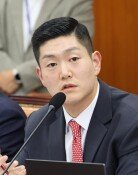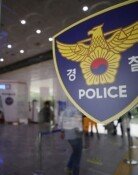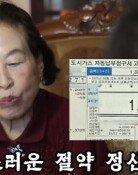[Editorial] The FKI's painful advice
[Editorial] The FKI's painful advice
Posted September. 21, 2000 21:00,
The Federation of Korean Industries' chairman and its top executives held an urgent informal meeting to make an eight-item recommendation for the nation's recent unstable economy. The FKI, having been concerned about the excessive implications of our looming economic crisis, assured the nation by concluding that the combined efforts of all those involved in economic activities can enable us to win over the present economic impasse without much difficulty.
But the fact that the FKI had to hold an urgent meeting to make such a recommendation not only to the government but also the ruling and opposition political forces as well as all those people in business indicates itself their grim understanding of our economy as requiring somewhat urgent attention.
The present alarms about our economic crisis were amplified by the markets' loss of confidence in the government's ability of crisis management to counter the country's economic crises, which are aggravated by such external economic variables as soaring crude oil prices, a sharp drop in prices of semi-conductor chips, and Ford Motor' renunciation of its bid for Daewoo Motor's sale.
In view of the current level of our foreign exchange reserves and the balance of current accounts, our present crisis can by no means be described as a total crisis like the one in 1997 that necessitated IMF intervention. The situation can, however, be exacerbated and become a grave crisis if we fail to adequately address the pending economic issues.
In view of its unique relationship with the government, the FKI understandably has refrained from all-out criticism of the way the administration manages the nation's economy. Nevertheless, its recommendations called for all economic actors to minimize any sources of economic waste like the time immediately after the country's IMF intervention. The government must first listen to the FKI's painful advice, and we all must regain the resolve and determination we had immediately after the IMF introduction in 1997 to overcome the crisis.
In our view, the Kim administration has slackened its efforts to pursue our pressing economic agenda after its official declaration that the country has finally ¡®graduated from the IMF regime,' together with its success for the historic inter-Korean summit. At this difficult time, President Kim Dae-Jung and his economic team must make their first priority winning the people's confidence in the administration's crisis management ability. This will ensure our sound economy which can in turn enable inter-Korean economic collaboration.
Among the FKI's eight-item recommendations, some items deserve our particular attention, including additional public funding and its transparent spending, prompt conclusion of Daewoo Motor's sale, and early legislation of key economic bills. This merits priority consideration because it can be viewed as a consensus of the nation's business establishment regarding our pending economic issues.
The FKI's recommendations over the Daewoo case urge the administration to bring an early, transparent settlement so as to minimize its fallout on financial markets. The FKI's opinion is that Ford's renunciation of its bid has already caused a fall in Daewoo's sale prices, which makes it all the more important for the government to conclude the deal as early as possible, lest it face worse conditions. Particularly noteworthy is the view of some business quarters that the administration should not place any restrictions on domestic firms' bids for Daewoo in order to sell it for its proper value.
There should be no partisan consideration between the ruling party and the opposition over the issues to overcome the nation's economic crisis. The heightened partisan bickering delays the legislation of the bills relevant to reforms and restructuring as well as additional public funding. This in turn plays a part in heightening our sense of economic crisis.
The wrongly spent public funds must fully be accounted for to hold those responsible for misappropriation in the past. Financial restructuring must be completed before the year's end so that liquidity crunches no longer burden economic activities. It is also advisable that the administration's scenarios and various policy alternatives must be known to counter soaring oil prices, especially when they hit over 35 dollars per barrel.







